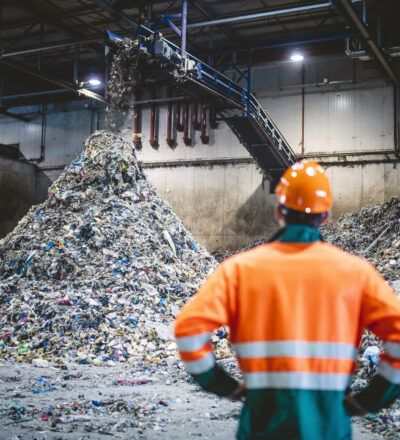An international plastic recycling consortium consisting of recyclers, processors, brand owners and research institutes is calling European policymakers to action. Backed by new technologies for high-quality recycling of PE, PP and PET, the consortium advocates for an integrated vision, mandatory standardisation, and a clear policy framework for cascading recycling technologies. These are essential steps to enable the transition to circular plastics of sufficient quality.
Plastics play an almost irreplaceable role in our society, mainly because of their beneficial properties such as light weight, durability, affordability and product protection. At the same time, it is crucial to address the environmental impact of current plastic use through a structurally coordinated international effort. Circular plastics — in which new plastics are replaced by high-quality recycled materials — are an important part of the solution.
To achieve this, advanced sorting technologies and recycling processes are required — preferably affordable and environmentally friendly. In the MOOI project Integrated approach towards Recycling of Plastics (InReP), a large international consortium of recyclers, converters, brand owners and knowledge institutes, has gained evidence-based insights and developed technologies to make high-quality recycled plastic packaging available. The consortium focuses on the three most commonly used plastics on the market: PE (polyethylene), PP (polypropylene) and PET (polyethylene terephthalate).
To establish an internationally integrated system for cascading recycling — in which plastic streams are used efficiently and purposefully for different recycling routes — policy and legal barriers must be removed. According to the consortium, there are currently major inconsistencies between the needs of the industry and the limited scope offered by current legislation to enable a true transition to circular plastics. Based on joint research and innovation results, the consortium makes an urgent appeal to European policymakers in this call to action to focus on three key areas:
To remove external barriers that hinder high-quality plastic recycling, the consortium calls on policymakers to:
- Develop an integrated vision, supported by coherent and realistic policies and regulations that stimulate innovation.
- Create a legal framework for the mandatory standardisation of packaging, in order to boost circularity, recyclability and quality.
- Establish a clear policy framework for cascading recycling technologies, to ensure sufficient volumes of high-quality recycled materials.
For more information on these three key areas, the consortium refers to the attached policy brief.
Questions?
For more information: Ronald Korstanje (ISPT) +31 6 4748 5569 or ronald.korstanje@ispt.eu.
| About the Circular Plastics Initiative The InReP project is part of the Circular Plastics Initiative (CPI), a collaboration between the Institute for Sustainable Process Technology (ISPT) and the Dutch Polymer Institute (DPI), two leading bodies in the Netherlands committed to stimulating circularity in plastics on an industrial scale. DPI is a global platform with a focus on collaboration in polymer research, to promote a deeper understanding of polymers in the complexity of sustainable polymer production. ISPT, as the Netherlands’ leading institute for open innovation in the process industry, has the vision to position the Netherlands as a leader in integrating the industry within a sustainable societal ecosystem. |
Acknowledgement
Topsector Energiesubsidie van het Ministerie van Economische Zaken en Klimaat.
